Refine search
Actions for selected content:
615749 results in History
A criação de uma cultura moderna no Brasil: Nacionalismo e cosmopolitismo na Primeira República (1889–1930)
-
- Journal:
- Latin American Research Review ,
- Published online by Cambridge University Press:
- 22 September 2025, pp. 1-18
-
- Article
-
- You have access
- Open access
- HTML
- Export citation
Memory of the multitude and representation in AI-generated images of war
- Part of
-
- Journal:
- Memory, Mind & Media / Volume 4 / 2025
- Published online by Cambridge University Press:
- 22 September 2025, e14
-
- Article
-
- You have access
- Open access
- HTML
- Export citation
Happily Ever After: Immigration, Natives’ Marriage, and Fertility
-
- Journal:
- The Journal of Economic History , First View
- Published online by Cambridge University Press:
- 22 September 2025, pp. 1-39
-
- Article
- Export citation
H.E.M. COOL, Blue/Green Glass Bottles from Roman Britain (Archaeopress Roman Archaeology 113). Oxford: Archaeopress, 2024. Pp. xi + 253, illus. isbn 9781803277431 (pbk) £50.00; 9781803277448 (e-book) £16.00.
-
- Journal:
- Britannia , First View
- Published online by Cambridge University Press:
- 22 September 2025, pp. 1-2
-
- Article
- Export citation
Beatrix Hoffman, Borders of Care: Immigrants, Migrants, and the Fight for Health Care in the United States Chicago: University of Chicago Press, 2025. Pp. 296. ISBN 978-0-226-82086-6. $25.00 (paper).
-
- Journal:
- The British Journal for the History of Science , First View
- Published online by Cambridge University Press:
- 22 September 2025, pp. 1-2
-
- Article
-
- You have access
- HTML
- Export citation
Nancy Rose Hunt and Hubertus Büschel (eds.), Psychiatric Contours: New African Histories of Madness Durham, NC: Duke University Press, 2024. Pp. 360. ISBN 978-1-4780-3034-8. $29.95 (paperback).
-
- Journal:
- The British Journal for the History of Science , First View
- Published online by Cambridge University Press:
- 22 September 2025, pp. 1-2
-
- Article
-
- You have access
- HTML
- Export citation
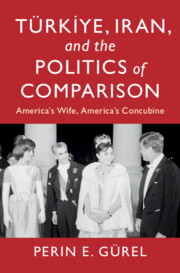
Türkiye, Iran, and the Politics of Comparison
- America's Wife, America's Concubine
-
- Published online:
- 21 September 2025
- Print publication:
- 09 October 2025
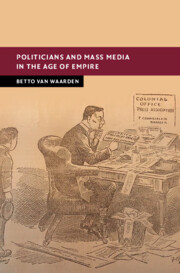
Politicians and Mass Media in the Age of Empire
-
- Published online:
- 20 September 2025
- Print publication:
- 09 October 2025
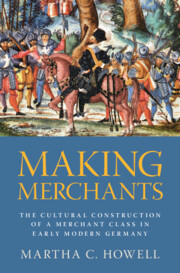
Making Merchants
- The Cultural Construction of a Merchant Class in Early Modern Germany
-
- Published online:
- 19 September 2025
- Print publication:
- 09 October 2025
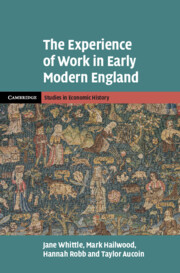
The Experience of Work in Early Modern England
-
- Published online:
- 19 September 2025
- Print publication:
- 09 October 2025
-
- Book
-
- You have access
- Open access
- Export citation

Kant on Language
-
- Published online:
- 19 September 2025
- Print publication:
- 09 October 2025
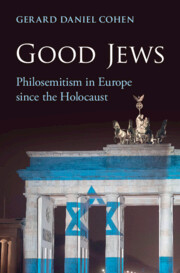
Good Jews
- Philosemitism in Europe since the Holocaust
-
- Published online:
- 19 September 2025
- Print publication:
- 07 August 2025
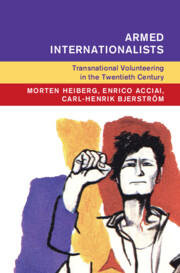
Armed Internationalists
- Transnational Volunteering in the Twentieth Century
-
- Published online:
- 19 September 2025
- Print publication:
- 09 October 2025
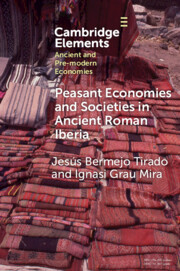
Peasant Economies and Societies in Ancient Roman Iberia
-
- Published online:
- 19 September 2025
- Print publication:
- 09 October 2025
-
- Element
- Export citation
Politics and political culture in Ireland from restoration to union, 1660–1800: Essays in honour of Jacqueline R. Hill. Edited by Raymond Gillespie, James Kelly & Mary Ann Lyons. Pp 224. Dublin: Four Courts Press. 2022. €55.
-
- Journal:
- Irish Historical Studies , First View
- Published online by Cambridge University Press:
- 19 September 2025, pp. 1-2
-
- Article
- Export citation
Reaping what was sown: ontological insecurity and the far-right consequences of anti-communism in Turkish–German Cold War relations
-
- Journal:
- New Perspectives on Turkey , First View
- Published online by Cambridge University Press:
- 19 September 2025, pp. 1-23
-
- Article
-
- You have access
- Open access
- HTML
- Export citation
Karl Marx, [und] Friedrich Engels. Gesamtausgabe (MEGA), Erste Abteilung, Band 4, Werke – Artikel -Entwürfe Ende August 1844 bis April 1846. Bearb. von Regina Roth und Christine Weckwerth. De Gruyter Akademie Forschung, Berlin [etc.] 2023. 1640 pp. € 189.95. (E-book: € 189.95.)
-
- Journal:
- International Review of Social History , First View
- Published online by Cambridge University Press:
- 19 September 2025, pp. 1-4
-
- Article
-
- You have access
- HTML
- Export citation
Uncivil war: the British army and the Troubles, 1966–1975. By Huw Bennett. Pp xv, 427. Cambridge: Cambridge University Press. 2023. £25.
-
- Journal:
- Irish Historical Studies , First View
- Published online by Cambridge University Press:
- 19 September 2025, pp. 1-2
-
- Article
- Export citation
Global Capitalist Assemblages: A Historiographical Appraisal of Multinational Enterprise in the Global South
-
- Journal:
- Enterprise & Society , First View
- Published online by Cambridge University Press:
- 19 September 2025, pp. 1-22
-
- Article
-
- You have access
- Open access
- HTML
- Export citation
Anglicizing tudor Connacht: the expansion of english rule in the lordships of Clanrickard and Hy Many. By Joseph Mannion. Pp 278. Dublin: Four Courts Press. 2024. Hardback €55/£50.
-
- Journal:
- Irish Historical Studies , First View
- Published online by Cambridge University Press:
- 19 September 2025, pp. 1-2
-
- Article
- Export citation
